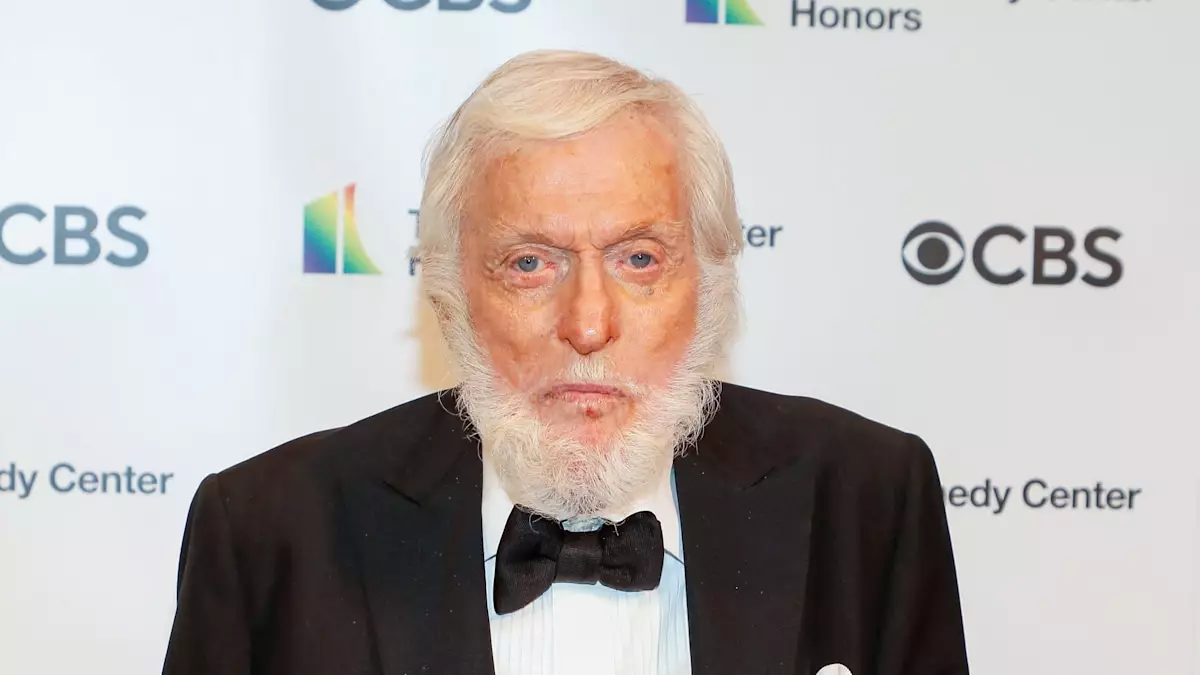Dick Van Dyke is a name synonymous with charm, wit, and timeless entertainment. Approaching his 100th birthday this December, the legendary actor and performer continues to captivate audiences, proving that age is not necessarily a barrier to impact or relevance. However, even icons like Van Dyke experience the natural vicissitudes of aging. Recent events showed this reality when, due to illness, he was forced to miss hosting his cherished annual Vandy Camp at Malibu High School. This absence, while disappointing to fans, highlighted the honest and vulnerable side of a man who has spent nearly a century delighting generations.
Van Dyke’s longtime partner, Arlene Silver, addressed the situation candidly, emphasizing the reality that at 99 and a half years old, not every day can be a “good” day. Such openness underscores a critical message often glossed over in celebrity culture—the importance of embracing human frailty with acceptance rather than denial. It’s refreshing that Van Dyke and his family choose to communicate this with authenticity rather than attempting to maintain an untouchable image of perpetual vigor.
Passion as the Driving Force Behind Longevity
What stands out most about Dick Van Dyke’s journey is his unwavering passion for life and performance. Vandy Camp, the event he and Arlene host, is more than a nostalgic glimmer for the past; it is an active celebration of comedy, vaudeville, and circus arts that fuels their enthusiasm. Despite the setbacks of health, Van Dyke’s connection to this vibrant community remains strong, reinforcing the idea that maintaining one’s passions contributes significantly to a fulfilling and extended life.
It is important to note that Van Dyke’s engagement with his artistic roots is not merely symbolic. It’s a living, breathing extension of who he is. The vitality he shows, whether in live appearances or virtual participation, offers a powerful counter-narrative to the common perception of aging as inevitable decline. Instead, it suggests a model where passion continuously revitalizes the spirit.
The Role of Physical Fitness in Aging
Among the most compelling insights Van Dyke offers is his take on physical health. Contrary to what many might assume, his longevity and activity levels are less about strict diets or medical interventions and more rooted in consistent exercise. Van Dyke’s routine gym visits with Arlene three times a week stand as a testament to the value of staying physically engaged, even into advanced years.
The notion that “most people at 98 don’t feel like working out” yet Van Dyke persists, reveals a blend of discipline and love for activity that other seniors could learn from. This approach is not just about longevity, but preserving mobility, sharpness, and quality of life. It’s a nuanced message: aging well is less about avoiding age itself and more about actively countering its limitations.
Defying Age Norms in Personal Life
Another dimension of Van Dyke’s story that challenges societal expectations is his relationship with Arlene Silver. Their considerable age difference—46 years—could easily become a focal point of criticism or misconception. But their candid humor and mutual respect diffuse such judgments, portraying a partnership based on mutual support and joy rather than timelines or stereotypes.
This openness about their age gap, and Van Dyke’s lighthearted admission that “not growing up” contributed to the strength of their marriage, introduces a refreshing perspective. It reminds us that relationships, especially in later life, can flourish on authenticity, shared fun, and emotional connection beyond superficial considerations.
A Legacy of Inspiration Rather Than Perfection
Ultimately, the narrative surrounding Dick Van Dyke transcends his career achievements. It encompasses resilience in the face of aging, sincere communication about limitations, active maintenance of health, and a vibrant personal life. It rejects the notion that legendary status demands an image of unblemished invincibility. Instead, it embraces the full spectrum of human experience—good days and bad, triumphs and setbacks—with an enduring spirit and infectious enthusiasm.
For admirers and observers alike, Van Dyke’s journey offers a meaningful example: growing older does not mean becoming irrelevant or fading into obscurity. There is power in vulnerability, energy in passion, and dignity in living fully despite the inevitable challenges time presents.

